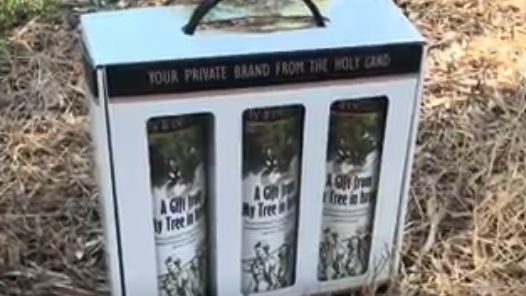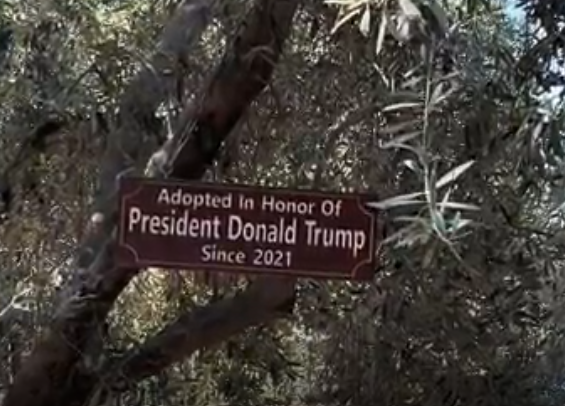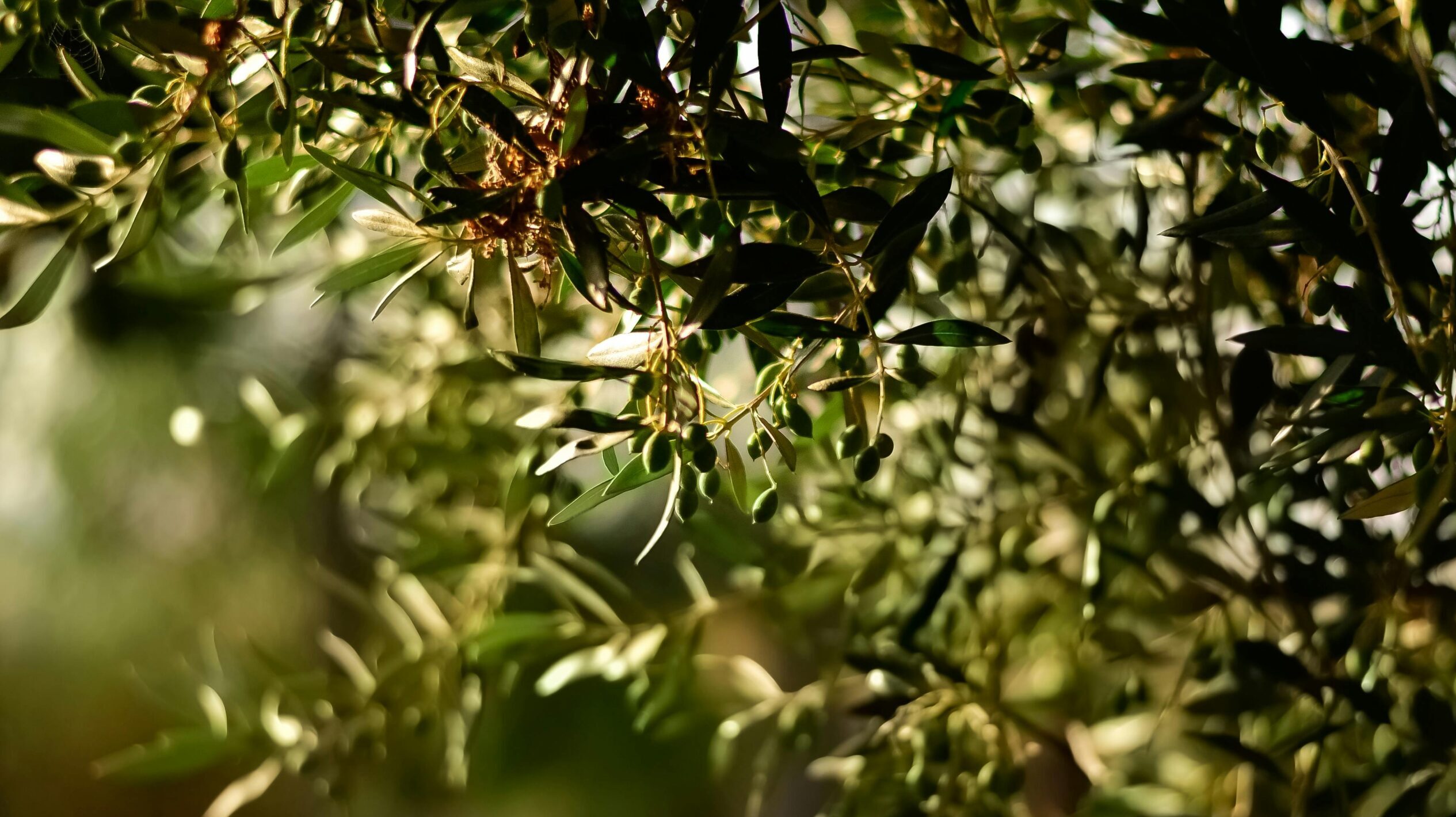In the Jezreel Valley, Olive Trees Tell Israel’s Story of War and Strength
My Tree was created to connect people around the world personally and directly to the land of Israel while also supporting local farmers
The olive harvest in Israel is drawing to a close. Across the country, hundreds of thousands of trees are being picked for the final time this season, and truckloads of freshly gathered olives are making their way to the presses.
One of those presses, the largest oil mill in the Middle East, sits in Moshav HaYogev. Owned by the Ashush family, whose groves date back to at least the founding of the State of Israel, the mill is widely considered the region’s most technologically advanced. Generations of tradition now operate alongside cutting-edge machinery, creating a rare blend of old and new.
These are peak days in HaYogev.
To produce high-quality oil, olives must be pressed within a few hours of harvest to maintain low acidity. The Ashush mill processes not only its own crop but roughly 6,500 tons of olives from farmers across the country. Growers from the north, the center, and even the south send their harvest there. The country relies on the mill to produce more than 2,500 tons of premium olive oil annually.
“They send their olives here because the farmers know that here they’re getting the best quality olive oil you can get,” said Yishai Gelb, co-founder of the My Tree in Israel project, which allows people around the world to “purchase” trees in the Ashush groves and receive private-label olive oil annually.
The mill supplies a significant share of Israel’s olive oil market, sold under numerous brands and private labels. But watching the oil flow this season carries particular emotional weight: It is the first harvest since the end of the war, a conflict that threatened the industry and the moshav itself.

My Tree Oil (Maayan Hoffman)
Moshav HaYogev and the Ashush groves lie in the Jezreel Valley, not far from Israel’s northern border. The area endured missile fire that scorched farmland, and many of the growers were called up for reserve duty, complicating both the harvest and production when timing is everything.
It doesn’t matter if there are sirens, if there are rockets, we have to be out here. We’re out here because olive trees don’t go into shelters; they don’t wait for the war to be over. They’re growing.
“Hezbollah and Iran have been firing rockets in this area nonstop for the past two years of war,” Gelb said one afternoon as he stood in the groves. It was just before the ceasefire, and the war had not yet come to an end. Planes could be heard in the sky, mostly leaving a nearby air base. “It doesn’t matter if there are sirens, if there are rockets, we have to be out here. We’re out here because olive trees don’t go into shelters; they don’t wait for the war to be over. They’re growing. So the olive farmers had to work, cultivating and harvesting, regardless of the situation of the war.”
He noted that Israel was fortunate. If the olive oil presses had been struck by rockets, “Israel would be in big trouble. We probably would have had to import expensive olive oil from Europe. The vast majority of olive oil consumed in Israel is made in Israel.”
Give the gift of hope
We practice what we preach:
accurate, fearless journalism. But we can't do it alone.
- On the ground in Gaza, Syria, Israel, Egypt, Pakistan, and more
- Our program trained more than 100 journalists
- Calling out fake news and reporting real facts
- On the ground in Gaza, Syria, Israel, Egypt, Pakistan, and more
- Our program trained more than 100 journalists
- Calling out fake news and reporting real facts
Join us.
Support The Media Line. Save democracy.


Olive trees bear fruit once a year, beginning their cycle around the Jewish holiday of Tu B’Shevat. The harvest takes place from September through November, after which the olives are pressed and the season’s fresh oil appears on store shelves.
Gelb said the Jezreel Valley is the “heart of where the Zionist dream first started. The pioneers came here at the beginning of the 19th century and first sparked the flame of Israel’s success story.”
Olive oil itself carries deep religious symbolism, he added. The olive tree is one of the seven species associated with the Land of Israel. It was olive oil that burned for eight days to keep the menorah in the Temple alight after its destruction by the Greeks in the time of the Maccabees.
“The olive branch symbolizes peace, something that we all strive for these days,” Gelb said.
The olive branch symbolizes peace, something that we all strive for these days
My Tree was co-founded by Gelb and his partner, Kobi Assaf, to connect people around the world personally and directly to the land of Israel while also supporting local farmers.
Since Oct. 7, 2023, the program has become even more critical. For $275 a year, participants can adopt a tree. Additional options include grapevines and whiskey casks at other northern locations. When adopters visit Israel, they can see their tree, labeled with their name. They also receive six bottles of private-label olive oil each year.
Walking through the groves, one finds names of families and congregations from around the world. Assaf said more than 60 different communities across the United States and Canada alone have joined the program. Some have purchased trees for themselves; others have done so in honor of loved ones.
There is a tree dedicated to US President Donald Trump. Another honors Jewish philanthropist Dr. Miriam Adelson. Some trees commemorate fallen soldiers, while others are dedicated to hostages—trees purchased during the war.

A tree adopted in honor of U.S. President Donald Trump (Maayan Hoffman)
One of the most meaningful trees bears the name of US Ambassador Mike Huckabee. It was planted for him by his wife, Janet, who has visited My Tree many times. Huckabee, Assaf said, has also visited the groves.
“We picked them up from Megiddo and drove them here to the olive grove to visit their tree,” Gelb recalled. This was when Huckabee was still the governor of Arkansas. He was so impressed by the program that he flew them to Nashville to appear on his show, an appearance that opened My Tree to a broad evangelical Christian audience.
“Since then, we’ve had hundreds, if not thousands, of evangelical Christians who have adopted their own trees in the land of Israel for their families and in memory of their loved ones as gifts,” Gelb said.
He [Ambassador Mike Huckabee] was so impressed by the program that he flew them to Nashville to appear on his show, an appearance that opened My Tree to a broad evangelical Christian audience
Huckabee himself has also adopted trees in honor of his friends.
“It’s so wonderful to have prominent American figures and real Israel supporters connecting to Israel through My Tree in Israel through the adoption of an olive tree, which really symbolizes a deep-rooted connection to the land of Israel,” Gelb said.
He said the blossoming olive tree represents Israel’s success story.
“When you adopt an olive tree and share the olive oil you get from your tree,” Gelb said, “you become an ambassador for the State of Israel.”

